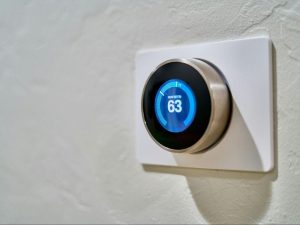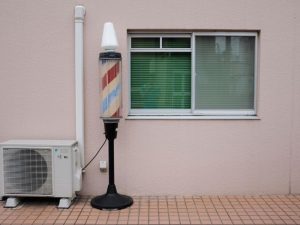Air conditioners are essential for maintaining comfort in homes and offices, especially during the hot summer months. However, like any complex appliance, they require regular maintenance to function efficiently and avoid common issues. Here are the top 10 most common air conditioner maintenance issues and how to fix them:
Dirty or Clogged Filters
Issue: Dirty or clogged filters are one of the most common issues with air conditioners. They restrict airflow, making the unit work harder to cool the space, which can lead to higher energy consumption and reduced lifespan.
Solution: Regularly check and replace filters. Most filters should be cleaned or replaced every 1-3 months. If you have pets or live in a dusty area, you might need to do this more frequently. To replace or clean the filter, turn off the unit, remove the filter, and either clean it with water and let it dry or replace it with a new one.
Refrigerant Leaks
Issue: Low refrigerant levels typically indicate a leak. According to our friends at Cool Today, this can cause the air conditioner to underperform and may eventually lead to a complete breakdown.
Solution: If you suspect a refrigerant leak, contact a professional HVAC technician. They will locate and repair the leak, and then recharge the system with the correct amount of refrigerant. It’s important not to try and fix this yourself, as handling refrigerant requires specialized equipment and knowledge.
Thermostat Issues
Issue: A malfunctioning thermostat can lead to improper cooling or the unit not turning on or off at the right times.
Solution: First, check the settings to ensure they are correct. If the thermostat is battery-powered, replace the batteries. If the problem persists, the thermostat might need to be recalibrated or replaced. Smart thermostats often require software updates, so ensure it’s up to date.
Dirty Coils
Issue: The evaporator and condenser coils can accumulate dirt over time, reducing their ability to absorb and release heat efficiently.
Solution: Clean the coils at least once a year. For the evaporator coils, remove the front panel of the unit, gently brush off dirt, and use a coil cleaner spray. For the condenser coils, located in the outdoor unit, remove debris and dirt using a garden hose, being careful not to bend the fins.
Blocked Drainage
Issue: The condensate drain can become clogged with dirt, algae, or mold, causing water to back up and potentially damage the unit or the area around it.
Solution: Check the drain line and clear any blockages. Use a wet/dry vacuum to suck out the debris or a thin, flexible brush to dislodge any clogs. To prevent future blockages, periodically pour a mixture of water and vinegar through the drain.
Fan Problems
Issue: The fans inside the air conditioner help move the air across the coils to cool it. If the fans aren’t working correctly, it can lead to poor airflow and cooling inefficiencies.
Solution: Check the fans for any visible damage or obstructions. Ensure that the fan motor is working and that the blades are not bent. If there’s a problem with the motor or the capacitor, you may need to call a professional to replace these components.
Electrical Issues
Issue: Over time, electrical components and connections can wear out, leading to issues such as the unit not turning on or off, or intermittent operation.
Solution: Regularly inspect the electrical components of your air conditioner. Turn off the power and check for any burnt wires, loose connections, or corroded terminals. If you find any issues, it’s best to call a professional to handle the repairs to avoid the risk of electric shock.
Frozen Evaporator Coils
Issue: Evaporator coils can freeze due to restricted airflow or low refrigerant levels, causing the unit to stop cooling properly.
Solution: Turn off the air conditioner and let the coils thaw. Check and replace the air filter, and ensure that the air vents are not blocked. If the problem persists, it could be a sign of a refrigerant leak or another underlying issue that needs professional attention.
Unusual Noises
Issue: Unusual noises such as grinding, squealing, or banging can indicate various issues, including loose components, motor problems, or debris in the unit.
Solution: Investigate the source of the noise. Tighten any loose screws or bolts, check for debris, and ensure that the fan blades are not hitting anything. If the noise persists, it could be a sign of a more serious issue such as a failing motor or compressor, which requires professional repair.
Sensor Problems
Issue: Air conditioners have a sensor near the evaporator coil that measures the air temperature entering the coil. If the sensor is out of position, it can cause the air conditioner to cycle constantly or behave erratically.
Solution: Check the sensor to ensure it is positioned near the coil but not touching it. Adjust its position if necessary. If the sensor is damaged, you may need to replace it. Consult your air conditioner’s manual or a professional for guidance on sensor replacement.
Preventative Maintenance Tips
To avoid these common issues and keep your air conditioner running efficiently, follow these preventative maintenance tips:
- Regular Inspections: Schedule regular inspections by a professional HVAC technician. They can identify and fix potential issues before they become major problems.
- Clean Surroundings: Keep the area around your outdoor unit clear of debris, plants, and other obstructions. This ensures proper airflow and prevents damage to the unit.
- Check Insulation: Inspect the insulation on refrigerant lines to ensure it’s intact and provides proper thermal insulation. Replace any damaged or missing insulation.
- Monitor Performance: Pay attention to your air conditioner’s performance. If you notice any changes in cooling efficiency, unusual noises, or higher energy bills, investigate the cause promptly.
- Use a Programmable Thermostat: Using a programmable thermostat can help regulate the temperature efficiently and reduce the load on your air conditioner, extending its lifespan.
- Annual Professional Maintenance: Have a professional perform annual maintenance, including checking refrigerant levels, inspecting electrical components, and cleaning the coils.
By addressing these common air conditioner maintenance issues and following preventative measures, you can ensure that your air conditioner operates efficiently and lasts longer, keeping your home or office comfortable throughout the year.




